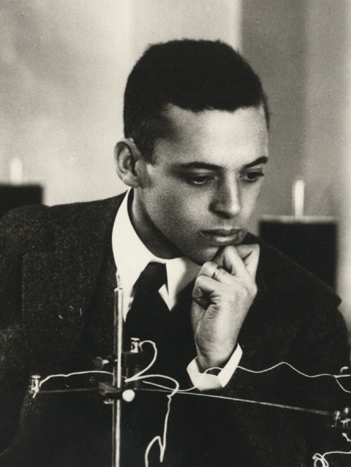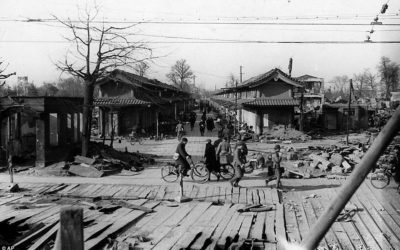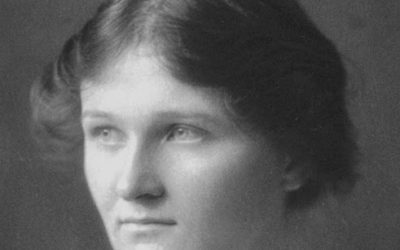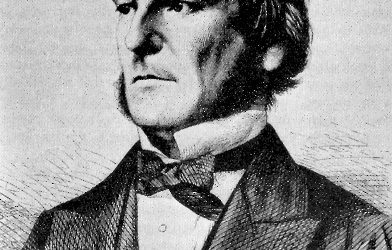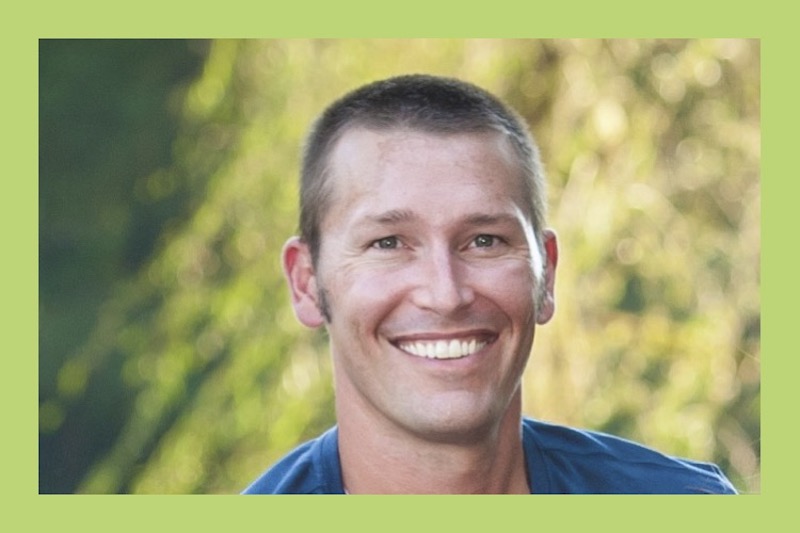Every university is like a microcosm of the society that surrounds it. In academia we find personal and professional relationships intertwined, periods of effective cooperation alternating with bitter controversy, and the same intense emotions and aspirations that are to be seen in the worlds of business or government. Academics argue with each other over facts and interpretations and with the administration over teaching priorities and research funding. As with any organization, to succeed in a university one must develop an aptitude for navigating an intricate web of impediments and obligations; for our subject today, the biologist Ernest Everett Just, this was the greatest challenge of his life.
Just was born in Charleston, South Carolina in 1883. His mother, the sole breadwinner of the family for most of his childhood, worked two jobs: as a teacher during the school year and in phosphate mines on James Island when school wasn’t in session. She had high hopes for her own son’s education, and was devastated when a bout of typhoid caused him to forget how to read and write at a young age. Relearning was slow and difficult, so much so that his mother actually gave up teaching him when it seemed that he wasn’t making progress. Just persevered on his own and managed to recover his lost skills, though the experience left him with bitter memories.
Having witnessed his extraordinary intelligence and tenacity firsthand, Just’s mother pushed him to achieve. Hoping to prepare him for a career in education, she sent him to a land grant school in South Carolina when he was 13 years old, then to a college-prep high school in New Hampshire. He went on to graduate magna cum laude from Dartmouth College with special honors in zoology, the field that would later become his vocation. Though his mother didn’t live to see his college success, Just honored her abiding love for education and fulfilled her dream for him by teaching.
In common with many black graduates of his time, Just was unable to find an inroad to several prestigious white-dominated universities, instead taking a teaching position at the historically black Howard University in 1907. He initially taught only English and rhetoric, but within a few years he was able to move to a newly-formed biology department, finally becoming head of an even newer zoology department in 1912. At around the same time he began to work as a research assistant at the Marine Biological Laboratory at Woods Hole in Massachusetts, where he performed experiments on the fertilization of eggs from marine invertebrates and pursued a doctorate in zoology at the University of Chicago, which he completed in 1916.
By the early 1920s, Just was arguably the most prestigious member of Howard University’s faculty. He was one of only a handful of black men who held a doctorate from a major American university, as well as a respected presence at the Woods Hole laboratory, where his experimental approach was widely admired. But Just was a big fish in a small pond; Howard was a relatively poorly-funded institution where his research was unlikely to be supported and where he had always been expected to devote himself primarily to teaching. These problems were exacerbated even further with the appearance on the scene of Howard president Mordecai Johnson, in 1926.
Johnson, who was later to assemble a formidable faculty of black academics at Howard, was a man with a vision. Regrettably, that vision had little room for the already-prominent Just and his zoology department. Johnson jockeyed for control of the money that came from grants Just had applied for and frequently deprived the department of resources in favor of the chemistry department and its rising star chemist Percy Lavon Julian. To Just, who was seven years older than Johnson and had worked at Howard for decades, Johnson’s prejudice against his department and apparent lack of respect for his hard-earned reputation was a flagrant insult. Johnson, for his part, seems to have taken a dim view of Just’s passion for biological research, seeing it as a distraction from the more important goal of teaching.
Starved of opportunities to expand his research at the university, Just looked for them abroad. From the late 1920s through the 1930s, he made nearly a dozen visits to European laboratories; among other honors, he was the first American scientist to be invited to study at the Kaiser Wilhelm Institute in Berlin. Ironically, Just enjoyed better treatment from foreign scientists than he could expect from his own colleagues at home. However, his interest in overseas research was to have a tragic conclusion. In 1940, Just was studying at a French laboratory at the same time as the Nazi invasion of France and he was briefly sent to a prisoner-of-war camp. Already in poor health, Just sickened even more in prison and died a little more than a year after he was released.
As a black academic of exceptional ability, Just faced constant pressure throughout his career. First was the racial discrimination that kept him from joining a major university and denied him the respect he had earned by study and research; there was also Johnson’s expectation that his research interests be secondary to teaching. Yet despite this pressure Just was determined to achieve, and his passion for science is something that should strike a chord in the heart of any lifelong student.
Next Post: Lillian Gilbreth, the time-and-motion expert who “humanized” efficiency studies.

